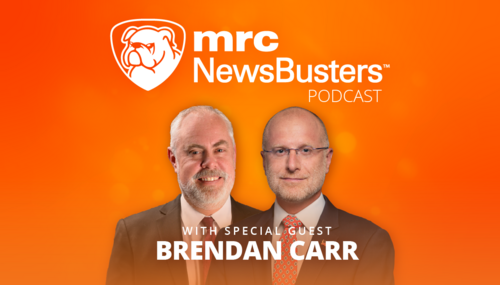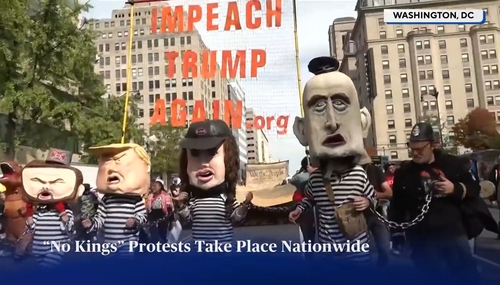
Blitzer first asked Snow a series questions concerning the subpoena of Karl Rove.
BLITZER: At issue, the firing of those prosecutors and Karl Rove's role -- if he had some -- in that. What's wrong with the Judiciary Committee engaging in what their constitutional requirement is -- oversight of these kinds of matters?
BLITZER: But, Tony, the Democrats point out that the conditions in which you've made Karl Rove and others available are simply unacceptable. They wouldn't be under oath. They couldn't even take -- do a transcript, have a record of what -- of what he was testifying about, and that's simply unacceptable.
In the first question, Blitzer repeats the "oversight" line used by congressional Democrats since they took power in January. In the second, it actually seems like Blitzer is agreeing with the Democrats, that it's "simply unacceptable" that the White House set the conditions for the testimony of Rove.
The bulk of the interview dealt with the possible investigation against attorney general Gonzales. To his credit, Blitzer brought up the fact that "they want -- some of the Democrats, members of the Judiciary Committee -- a special counsel to investigate whether he [Gonzales] lied, whether he committed perjury" in his testimony before Congress concerning the Terrorist Surveillance Program, something that Roberts didn't even bring up in his interview with Schumer. First, Blitzer asked Snow these questions:
BLITZER: What do you say to these charges that there are flat out contradictions between what they have told Congress and what Alberto Gonzales has testified under oath about?
BLITZER: Did the other three [the former deputy attorney general, James Comey; the former director of national intelligence, John Negroponte; and Monica Goodling] lie?
Blitzer brought up the "charges" of the Democrats, the partisan opponents of the White House. But Roberts never brought up the "charges" or criticisms of the Republican opponents of Schumer's efforts.
Blizer and Snow then had this exchange concerning a comparison between the Bush White House and the administration of Bill Clinton.
BLITZER: Here is what a lot of Democrats are saying on the Hill. They're the majority right now. They remember when they were in the minority, when there was a Democrat in the building where you worked. That would be Bill Clinton. Listen to one of Bill Clinton's former aides, Paul Begala, what he said the other day.
SNOW: Oh, come on!
BLITZER: I want you to listen.
SNOW: You're going to give me some...
BLITZER: Listen to this.
SNOW: Paul Begala!?
BLITZER: Paul Begala. Listen to this.
SNOW: Oh my goodness!
PAUL BEGALA, DEMOCRATIC STRATEGIST: When I was working in the Clinton White House, one committee alone, the House Government Reform Committee, issued a thousand subpoenas to Clinton administration officials. A hundred and forty-one different people were subpoenaed.
BLITZER: So, if it was OK for Republicans to do it to a Democratic White House, then why isn't it OK for Democrats to do it to a Republican White House now?
SNOW: Look, people get issued subpoenas. We've never argued against that. There are some cases in which executive privilege applies. And I believe the very first executive privilege case this administration supported was for -- oh, that's right, the Clinton administration -- trying to preserve the ability for people to have conversations -- confidential conversations with the president. Those Government Reform and Oversight subpoenas, I think, had to do with things other than confidential conversations with the president. But I'm not going to say that members of Congress don't have oversight obligations or responsibilities. Of course they do.
The clip from Begala that Blitzer said was from "the other day" was actually from March 21, more than four months earlier. In any case, Blitzer again asks a question that you might hear a Democrat leader or pundit make.
Comparing the Roberts interview with Blitzer's, it's clear that there is a major inconsistency in treatment between Democrat guests and Republican guests on CNN.




